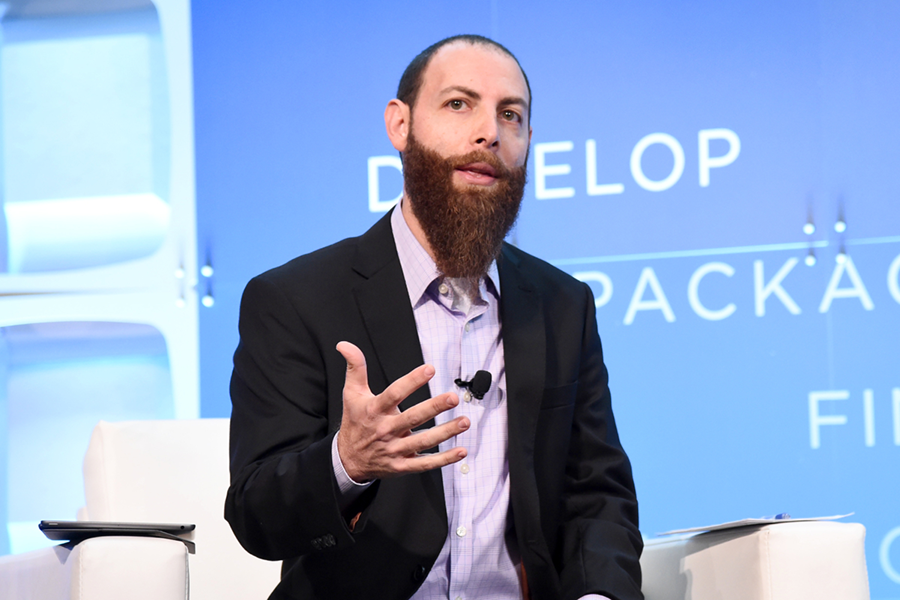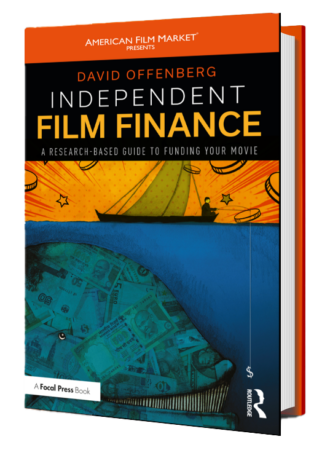
Ten years ago, David Offenberg set out to become the world’s leading academic expert in entertainment finance. Today, he can claim that title with confidence. Offenberg, an associate professor of finance at LMU, introduced his “Entertainment Finance” course in 2014 – the first of its kind offered to undergraduate finance students in Los Angeles.
Over time, he has built a strong network of finance professionals in the entertainment industry (many of whom are LMU alumni) and leverages those connections for class speakers, company visits, internships, and jobs. His former students work at Apple TV+, Disney, Lionsgate, NBCUniversal, Netflix, Marvel Studios, Paramount, Sony Pictures, and Warner Bros. Discovery, among others.
Offenberg is frequently quoted in the press, provides financial and analytical consulting services to independent filmmakers and studios, and delivers keynote addresses to entertainment industry professionals. Now he can add published author to his list of accolades. On Nov. 2, Offenberg released his book, “Independent Film Finance: A Research-Based Guide to Funding Your Movie.”

Through all his efforts and success, LMU is now recognized as a leading institution for entertainment finance. Offenberg took a moment to reflect on his journey, talk about his new book, and share predictions on the future of Hollywood.
How did you corner the market as the leading expert in entertainment finance?
By always thinking like a student! In hindsight, it’s not surprising, considering there are no standardized textbooks, cases, or readily available teaching materials for professors to grasp the fundamentals and create “Entertainment Finance” courses. Over the past decade, I have invested thousands of hours in interviewing industry experts, devouring trade publications, dissecting contracts, listening to podcasts, and delving into data analysis. This continuous learning approach has enabled me to stay ahead of the dramatic changes we’ve all witnessed in the entertainment industry in recent years. As far as I can tell, I’m the only tenured finance professor in the world specializing in entertainment.
What inspired you to write this book?
Books are still an incredible tool to build credibility, especially if they are picked up by a top publisher (as mine was). It is my career goal to make LMU the world’s leading institution for entertainment finance. I knew that I needed to write a book to help grow that reputation. The other benefit was that it gave me a really good excuse to collect data. I interviewed 50 independent film producers about the financial structures they used in their projects. No academic had ever collected this type of data before, so it was a real joy to be able to poke around in it. I use it in the book to show the financial career arcs of producers and provide guidance about the choices that a producer can make to finance bigger movies.
Who should read this book and why?
This book is written for aspiring filmmakers who are trying to figure out how to finance their first movie. It leverages the financial and practical wisdom of lots of very successful producers. I’ve crowdsourced the best financial knowledge into one book.
What’s your take on the future of Hollywood?
Entertainment firms are going to be challenged in the years ahead by changes in consumer behavior, largely driven by changes in technology. I love movies, but they peaked in 1931 and have been hanging on mightily ever since. Streaming is getting better and better, but I still see it as a long-term stop-gap measure to keep consumers engaged in filmed content until we’re all just playing video games instead. Gen Z already spends more time gaming than watching, and that trend is going to pick up steam as 140 million new gamers are born globally each year. We’re all in for a fun ride!



